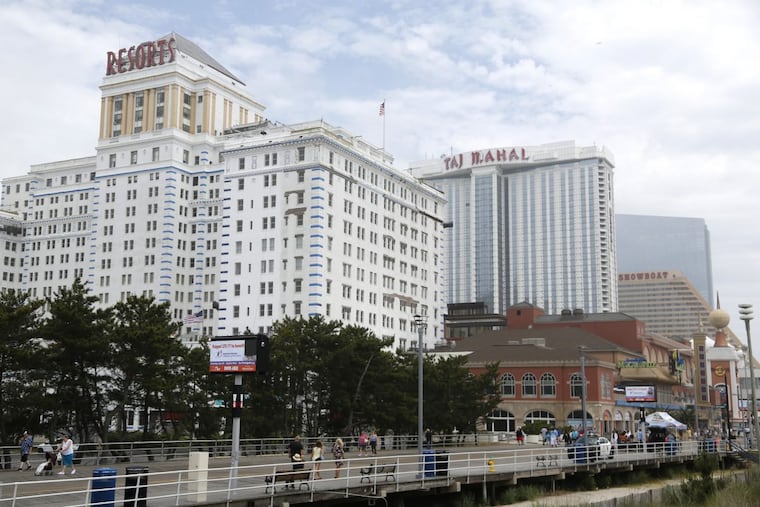N.J. sports betting case: How we got here and what happens next
New Jersey wants to get in on the more than $150 billion bet on sports each year, and on Monday the state took its case to the U.S. Supreme Court.

New Jersey wants to get in on the estimated more than $150 billion bet on sports in the U.S. each year, and on Monday the state took its case to the U.S. Supreme Court.
Gov. Christie is asking the high court to invalidate a 1992 federal law that banned sports wagering in nearly all states. The Republican governor and New Jersey lawmakers think sports wagering could breathe new life into Atlantic City's casinos and generate much-needed revenue for the cash-strapped state.
Here's a review of how we got to Monday's oral arguments and what might happen next:
The 1992 law made sports gambling illegal in all but Nevada, Delaware, Montana, and Oregon. The Professional and Amateur Sports Protection Act (PASPA) also gave New Jersey one year to enact a law authorizing sports betting, but the state failed to do so.
A few years ago, New Jersey lawmakers started to reconsider that decision. In 2011 voters amended the state constitution to authorize the Legislature to legalize sports betting at casinos and racetracks. The amendment barred wagers on New Jersey college teams or any collegiate events in the state.
Since then, the state has twice passed laws that attempted to overcome Congress' prohibition on sports betting and federal lawsuits filed by the National Collegiate Athletic Association and the four major professional sports leagues (the National Football League, Major League Baseball, National Hockey League, and National Basketball Association).
Courts ruled against New Jersey, saying the state's plan violated federal law. But the Supreme Court revived the state's hopes in June when the justices said they would take up the case.
What does New Jersey argue?
The state argues that PASPA violates the 10th Amendment, which says "powers not delegated to the United States by the Constitution, nor prohibited by it to the States, are reserved to the States respectively, or to the people."
New Jersey passed a law in 2012 that explicitly authorized sports gambling; after the courts struck that down, the state in 2014 repealed its own prohibitions on sports wagering at casinos and racetracks without setting up a regulatory system.
New Jersey argues that under the 10th Amendment, the federal government cannot require the state to maintain its own prohibitions on sports wagering. PASPA "impermissibly commandeers state regulatory authority by dictating the content of state law— States may not legalize sports wagering," lawyers for New Jersey wrote in court filings.
The question before the court
The question before the court in this case is whether forcing New Jersey to repeal its own sports-wagering prohibition is unfairly neutralizing "the regulatory power of the state."
The sports leagues, backed by President Trump, argue the federal law doesn't force the state to do anything; it simply outlines what it cannot do. The leagues also say New Jersey's 2014 repeal of its sports-betting ban is a sleight of hand that effectively authorizes sports wagering without explicitly saying so.
What happens next?
The Supreme Court is expected to rule on the case by the end of June. If the court declares PASPA unconstitutional, New Jersey and scores of other states could seek to pass laws legalizing sports gambling. The American Gaming Association says gamblers illegally bet $150 billion on sports games in 2016. The high court could also issue a narrower decision that upholds New Jersey's 2014 law without invalidating the federal statute.
Or it could side with the leagues.